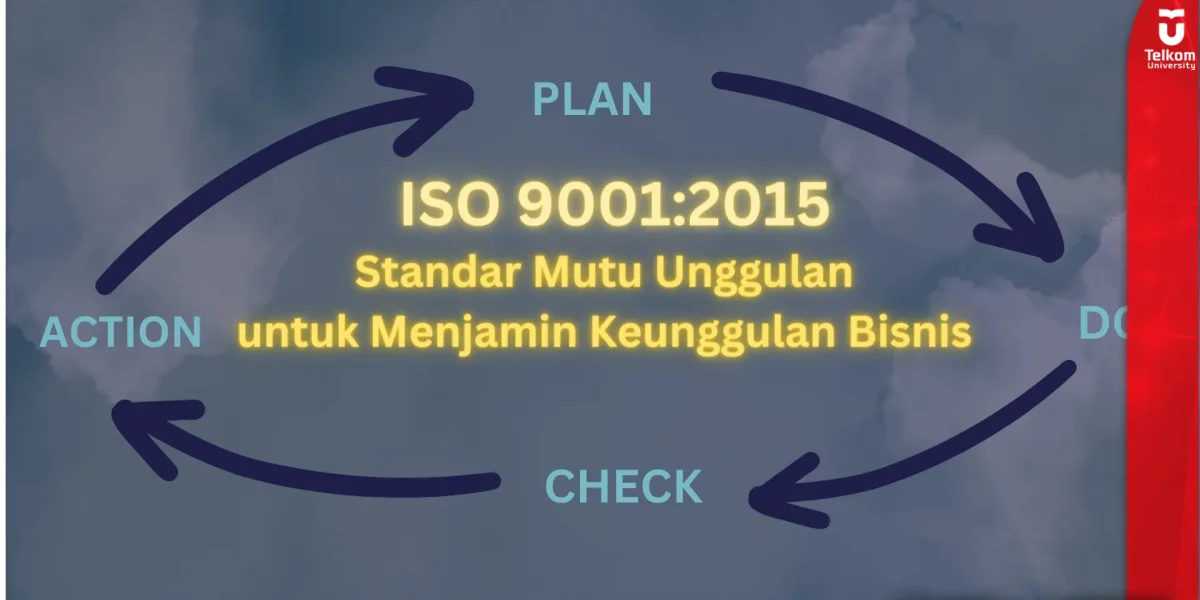ISO 9001:2015 Superior Quality Standards to Guarantee Business Excellence
A good business can be established because it has good foundations. One of the foundations that can strengthen the superiority of a business is an assessment that is recognized and in accordance with national or even world standards. A business can be assessed as good, it is not enough just from an internal assessment, it is necessary to carry out an assessment or audit from an external party that verifies the service of a business, to get recognition from external parties a business usually carries out verification to obtain the ISO 9001:2015 standard which is a standard related to the quality management system which consists of 10 clauses which contain requirements and conditions that must be fulfilled by a company.
Quality Management System
A quality management system is a structured approach used by a company to manage the quality or services offered by the Company, with the aim of ensuring that the products or services offered can meet or even exceed customer expectations and meet the specified requirements. A quality management system involves a process of planning, implementation, control and continuous improvement, this includes identifying and understanding customer needs, developing appropriate policies and procedures, measuring and analyzing performance, as well as corrective actions needed to improve quality. By making efforts to implement QMS, companies can increase customer satisfaction, reduce unwanted defects or nonconformities, increase operational efficiency, and achieve excellence in the quality of the products or services they provide.
ISO 9001:2015 and its 7 Principles
ISO 9001 is a quality management standard that is recognized globally. This standard helps companies to improve employee performance, meet customer expectations and demonstrate the Company’s commitment to the quality of the products or services offered. By implementing ISO 9001, it means that the company has implemented effective processes and trained staff to produce products or services without defects from time to time. There is a PDCA cycle (Plan, Do, Check, Action) in QMS ISO 9001:2015, this cycle is carried out to fulfill the requirements of ISO 9001:2015 and must be sequential,
- The Plan Cycle represents clauses 4,5, 6 and 7 (Organizational Context, Leadership, Management System Planning and Support)
- The Do cycle represents clause 8 regarding Operation
- The Check Cycle represents clause 9 regarding Performance Evaluation
- The Act cycle represents 10 cases related to Improvement
There are 10 clauses in ISO 9001:2015, namely as follows:
- Scope
- Normative Reference
- Terms and Definitions
- Organizational Context : Discusses the identification of relationships between processes, internal and external issues, as well as relationships with interested parties and determines the scope of application of ISO 9001.
- Leadership: Discusses the obligations that must be carried out by top management
- Planning: Discusses the importance of companies recognizing risks and opportunities; seeks to seize opportunities and prevent, reduce and manage risks
- Support: Discusses everything related to supporting processes such as documents, infrastructure, resources, competencies, socialization and communication, to measuring tools, collected in this clause
- Operations: Discusses all matters related to operations, starting from product or service planning to handling problems during operational processes
- Performance evaluation: Discusses internal audits, measurement, monitoring, processes, customer satisfaction, process analysis and evaluation, as well as management review meetings
- Improvement: Discusses the continuous improvement efforts that must be carried out by the company
There are seven principles in ISO 9001:2015 as guidelines for improving company performance:
- Customer Focus – Adapting products or services to customer needs
- Leadership – Leaders can direct and make decisions for a company in accordance with the company’s vision and mission
- Engagemnet of People– Involvement of all related parties, all internal parties of the Company know about the products or services offered and know what things customers might ask
- Process Approach– Coordination is interconnected between internal and external parties
- Improvement – The company makes continuous improvements in a positive direction
- Evidence-based decision making – Companies can make decisions based on valid evidence
- Relationship Management – Have a good relationship between units/departments/sections in the company to understand each other’s main duties and functions

